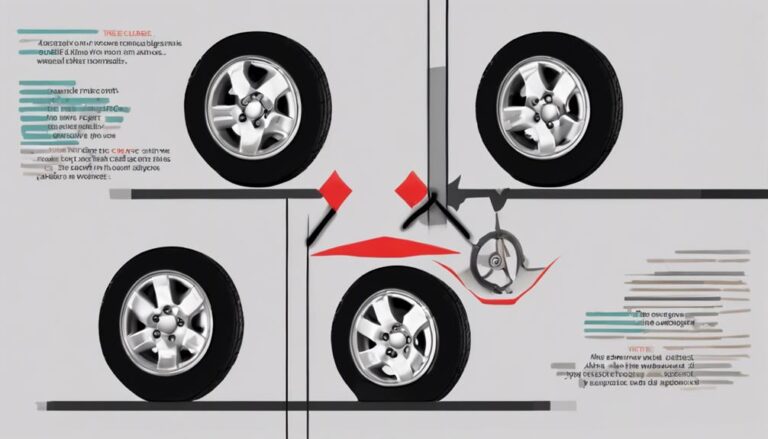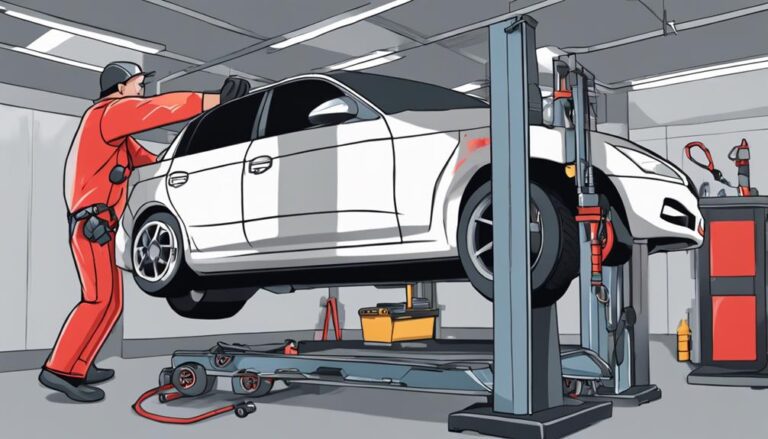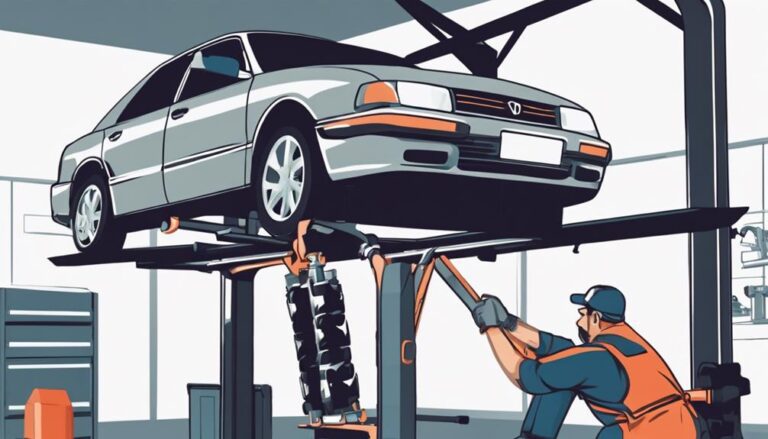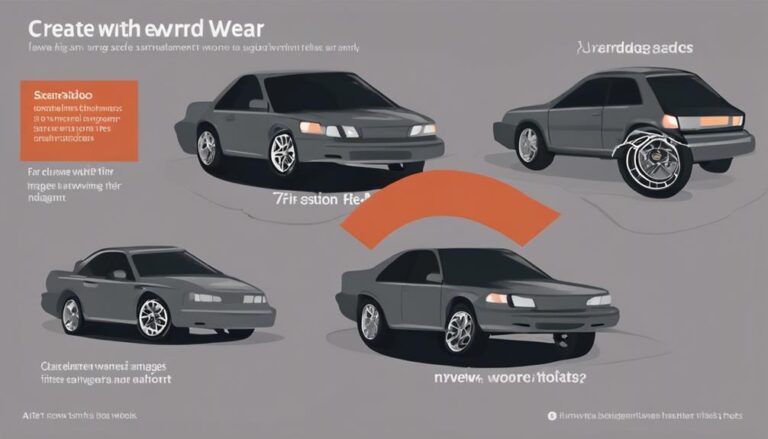Why Is Wheel Balancing Crucial in Tire Rotation?
Imagine your tires as dancers on a stage; for a flawless performance, each one must be in perfect sync. Wheel balancing plays a vital role in this synchronization, ensuring that your vehicle moves smoothly and safely.
But why is this seemingly small task so crucial in the grand scheme of tire rotation? Let's explore how a balanced wheel can impact not only your driving experience but also your safety on the road.
Key Takeaways
- Wheel balancing is essential for optimal vehicle performance and safety.
- Imbalanced wheels lead to uneven wear, compromising stability and comfort.
- Proper balancing extends tire lifespan, enhances performance, and ensures safety.
- Neglecting wheel balancing risks safety, efficiency, and costly repairs.
Importance of Wheel Balancing in Tire Rotation
Proper wheel balancing during tire rotation is essential for maintaining optimal vehicle performance and safety on the road. By ensuring even weight distribution on each tire, wheel balancing helps prevent vibrations, leading to a smoother ride. This balance is crucial for tire longevity, as imbalanced tires can wear unevenly, reducing their lifespan and affecting overall performance.
During tire rotation, balancing the wheels plays a significant role in maintaining proper alignment, which is essential for a smooth ride and handling. Neglecting this balance can result in handling issues and safety hazards. Ensuring that each tire is balanced correctly also enhances tire traction, improves fuel efficiency, and promotes safer driving conditions.
In essence, incorporating wheel balancing into tire rotation procedures isn't just about a smoother ride; it's about prolonging tire longevity, optimizing vehicle performance, and most importantly, ensuring your safety on the road.
Effects of Imbalanced Wheels on Vehicle
Experiencing imbalanced wheels on your vehicle can lead to a range of detrimental effects on its performance and safety.
The impact on performance is significant, as imbalanced wheels can cause uneven tire wear, leading to premature tire replacement. Additionally, vehicle stability and handling may be compromised, affecting your driving comfort.
The vibrations and shaking resulting from imbalanced wheels not only decrease comfort but also indicate potential safety concerns. Uneven weight distribution on wheels can further impact fuel efficiency, diminishing the overall performance of your vehicle.
It's crucial to address imbalanced wheels promptly to ensure optimal performance and safety. Regular wheel balancing is essential to maintain smooth operation, maximize tire lifespan, and create safer driving conditions. By prioritizing proper wheel balance, you can enhance your driving experience and prolong the longevity of your tires while promoting a safer journey for you and your passengers.
Benefits of Proper Wheel Balancing
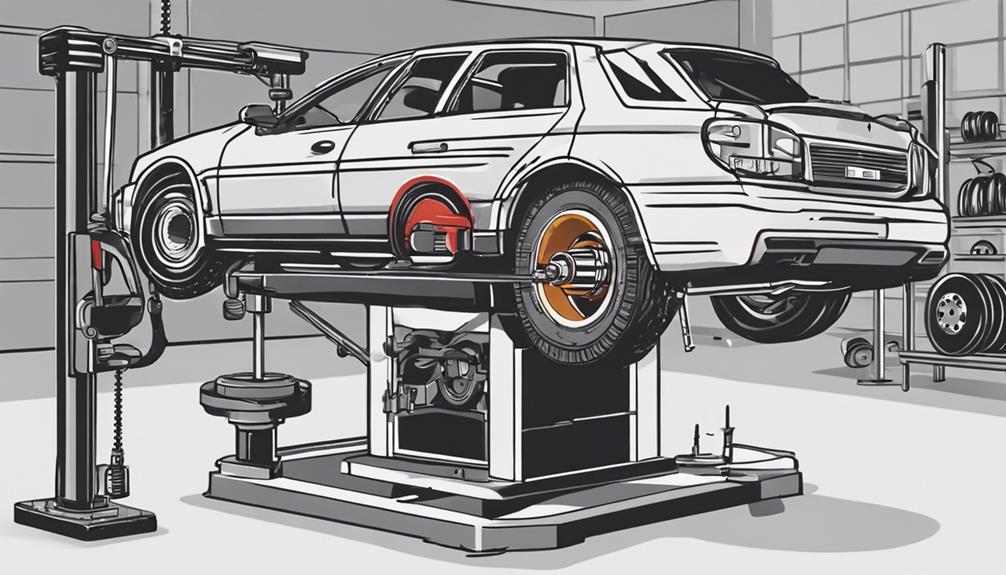
Achieving optimal wheel balance is crucial for ensuring a smooth and safe driving experience. Proper wheel balancing offers various benefits that directly impact performance enhancement and tire longevity.
By reducing vibrations, balanced wheels provide a comfortable and smooth ride, contributing to improved driving comfort. Additionally, balancing tires evenly distributes weight, preventing premature wear on specific areas of the tire. This even weight distribution enhances tire performance and traction, especially at high speeds, where balanced wheels help maintain stability and control.
Furthermore, regular wheel balancing as part of tire rotation not only extends tire lifespan but also enhances overall vehicle safety by reducing the risk of steering issues and uneven tire wear. Therefore, prioritizing proper wheel balancing not only improves the driving experience but also ensures safety benefits and maximizes the longevity of your tires.
Risks of Neglecting Wheel Balancing
Neglecting proper wheel balancing poses significant risks to both your vehicle's performance and safety. Failure to maintain balanced wheels can lead to uneven tire wear, reducing the overall lifespan of your tires and compromising safety on the road. The vibrations caused by unbalanced wheels not only affect your comfort while driving but also impact the stability of your vehicle.
Additionally, improper wheel balance can result in increased fuel consumption, lowering your vehicle's fuel efficiency over time. Steering issues may also arise from neglected wheel balancing, affecting the handling and control of your vehicle. Furthermore, the stress imposed on suspension components due to wheel imbalance can lead to costly repairs down the line.
Wheel Balancing Techniques for Longevity
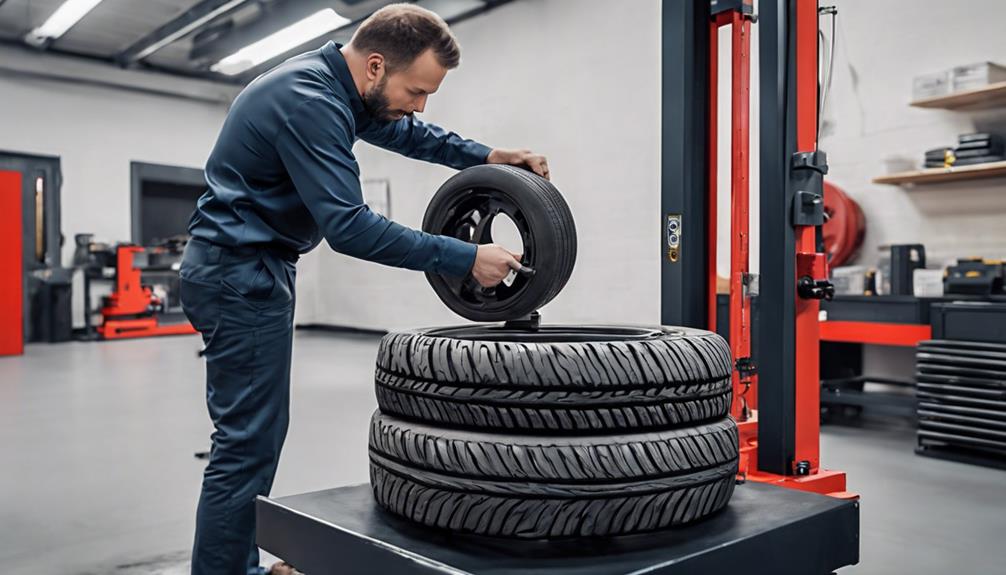
To ensure the longevity of your tires and maintain optimal vehicle performance, mastering effective wheel balancing techniques is crucial. Proper wheel maintenance involves techniques that reduce vibration and promote a smooth ride.
By adding or removing weights to correct imbalances, you can prevent issues such as uneven tire wear and steering irregularities. Imbalanced wheels not only compromise tire performance but also impact overall vehicle stability and handling.
Implementing precise wheel balancing procedures enhances tire performance, extends tire lifespan, and promotes safer driving conditions. By ensuring that your wheels are correctly balanced, you're actively contributing to the longevity of your tires and the efficiency of your vehicle.
Frequently Asked Questions
Is It Necessary to Balance Tires When Rotating?
When rotating tires, balancing is essential for optimal performance and safety. It ensures even weight distribution, preventing vibrations and uneven wear. Following correct procedures for balancing is crucial to reap the benefits of a smooth ride.
What Happens if You Don't Balance Wheel?
If you neglect wheel balancing, potential consequences include uneven tire wear, vibrations, compromised stability, and accelerated suspension wear. Wheel imbalance can create unsafe driving conditions, especially at higher speeds. Ensure balance for optimal performance.
Do I Need an Alignment When I Rotate My Tires?
When you rotate your tires, always consider an alignment check. Detecting and addressing alignment issues promptly prevents uneven tire wear. Keep your vehicle safe and maintain optimal performance by ensuring your tires are properly aligned.
Why Does My Car Shake at 65 After Tire Rotation?
When your car shakes at 65 mph after tire rotation, unbalanced tires could be the culprit. Uneven weight distribution leads to vibrations at higher speeds, affecting driving comfort. Ensure professional balancing to rectify this issue, considering speed limits and road conditions.
Conclusion
In conclusion, wheel balancing is an essential aspect of tire rotation to ensure optimal performance and safety. Neglecting proper wheel balancing can result in uneven wear patterns, vibrations, and potential hazards on the road.
By addressing imbalanced wheels during tire rotation, you can maintain vehicle stability, extend tire lifespan, and enjoy a smoother driving experience. Remember, a well-balanced wheel is like a harmonious symphony, ensuring your vehicle runs smoothly and efficiently.


